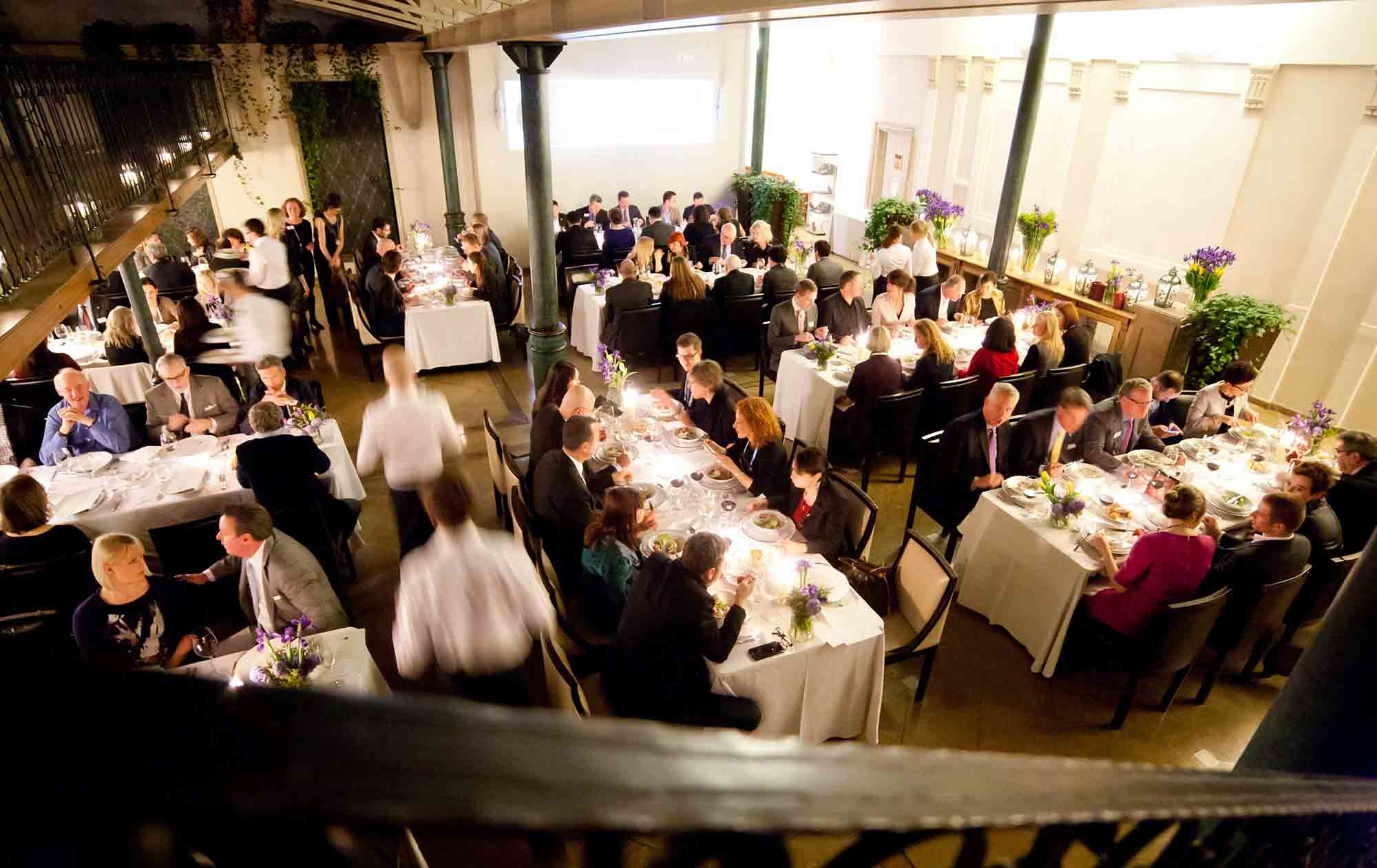Ensuring a safe meal boils down to the importance of communication and advocating for guests with special diets.
Creating and delivering memorable events is the plan. But, if an attendee becomes ill due or food poisoning or a meal being contaminated with listeria, the likelihood of return engagement evaporates. Food safety aside, another way attendees can become ill is by being served a meal unsafe or inappropriate for their health condition. Equally concerning is serving a dish which contradicts a religious belief system or health choice. Food allergies, celiac disease, and diabetes are a few health conditions that require personalized meals.
Dishing up personalized meals is becoming common place, nevertheless, it is still challenging at some venues to create meals that meet multiple needs or to have proper meal delivered to the correct attendees in a timely fashion. Ensuring a safe meal boils down to the importance of communication between all those within the event food chain and advocating for guests with special diets.
Here are a 10 ways to advocate for guests with special diets, including tips to help guests speak up for themselves.
![]() As the ink drives on the contract, ensure both sides agree on the process for ordering, preparing and expediting meals for those with special dietary needs. How will they be prepared? Who will serve them? How will attendees request meals? How will servers handle the requests? Deadlines for placing orders.
As the ink drives on the contract, ensure both sides agree on the process for ordering, preparing and expediting meals for those with special dietary needs. How will they be prepared? Who will serve them? How will attendees request meals? How will servers handle the requests? Deadlines for placing orders.
![]() Ensure your event registration process provides for clear identification of needs and explains the process your attendees will experience at your event—will they be getting meal cards, how food will be labeled, who is their onsite contact at the event?
Ensure your event registration process provides for clear identification of needs and explains the process your attendees will experience at your event—will they be getting meal cards, how food will be labeled, who is their onsite contact at the event?
![]() Communicate attendee needs to food and beverage partners well in advance (more than two weeks) of the event so they can properly prepare to meet the needs. They may even be able to plan your entire menu without a specific food allergen. Clear communication is at the heart of safely serving special meals.
Communicate attendee needs to food and beverage partners well in advance (more than two weeks) of the event so they can properly prepare to meet the needs. They may even be able to plan your entire menu without a specific food allergen. Clear communication is at the heart of safely serving special meals.
![]() Be transparent about the food you’re serving. Labeling buffets and/or menus with allergens will decrease attendee anxiety and help ensure their safety and can remind other participants that food allergens are present and alert them to be cautious about cross-contact.
Be transparent about the food you’re serving. Labeling buffets and/or menus with allergens will decrease attendee anxiety and help ensure their safety and can remind other participants that food allergens are present and alert them to be cautious about cross-contact.
![]() You’ve seen it; guests arrive and ask the server if they can have a dairy free meal. Guests often don’t realize meals are not made to order for each guest. Be prepared to quickly dish up common allergen meal requests.
You’ve seen it; guests arrive and ask the server if they can have a dairy free meal. Guests often don’t realize meals are not made to order for each guest. Be prepared to quickly dish up common allergen meal requests.
![]() Establish standard operating procedures for allergen and special diet safety. Train all servers and kitchen staff regarding this protocol. Make sure your staff knows what to say to guests and how to follow through to ensure a safe meal will be prepared.
Establish standard operating procedures for allergen and special diet safety. Train all servers and kitchen staff regarding this protocol. Make sure your staff knows what to say to guests and how to follow through to ensure a safe meal will be prepared.
![]() As a guest, reach out to your host or event planner about your special diet as soon as you receive your invitation. Your hosts are committed to creating a safe and special event. Never think of yourself as a burden, but as helping hosts ensure a safe meeting or event.
As a guest, reach out to your host or event planner about your special diet as soon as you receive your invitation. Your hosts are committed to creating a safe and special event. Never think of yourself as a burden, but as helping hosts ensure a safe meeting or event.
![]() If you are an event attendee and did not previously share your special diet needs, don’t wait until the server comes to your table. Immediately ask for the person in charge of the meals. Even though your request is last minute, hopefully, the kitchen will have safe and appropriate ingredients on hand. Explain your needs and stay flexible since there will be no time to order special ingredients.
If you are an event attendee and did not previously share your special diet needs, don’t wait until the server comes to your table. Immediately ask for the person in charge of the meals. Even though your request is last minute, hopefully, the kitchen will have safe and appropriate ingredients on hand. Explain your needs and stay flexible since there will be no time to order special ingredients.
![]() If you are served a meal that looks suspect, please speak up! No chef or event planner wants a guest to get sick. Flagging a questionable meal is perfectly fine. Does the flaxseed bread look like it contains sesame? If you are unsure, take a few minutes to ask for confirmation. Again, no one wants a guest to get sick.
If you are served a meal that looks suspect, please speak up! No chef or event planner wants a guest to get sick. Flagging a questionable meal is perfectly fine. Does the flaxseed bread look like it contains sesame? If you are unsure, take a few minutes to ask for confirmation. Again, no one wants a guest to get sick.
![]() When you are heading to an event, help create a supportive space for your colleagues by asking if they have requested a special meal. Often people do not want to appear burdensome, and they will avoid asking for a special meal. Not sharing special needs puts everyone at risk for an adverse event. To keep everyone at the table safe, communicating special diets is critical for the success of an event or meeting.
When you are heading to an event, help create a supportive space for your colleagues by asking if they have requested a special meal. Often people do not want to appear burdensome, and they will avoid asking for a special meal. Not sharing special needs puts everyone at risk for an adverse event. To keep everyone at the table safe, communicating special diets is critical for the success of an event or meeting.
Management of special dietary needs is critical for creating inclusive food and beverage events starts before the contract is signed to the server presenting a safe and delicious meal. When guests with special diets are served safe and tasty food, they often become loyal patrons. A few extra steps and new habits will create the path for successful events.



